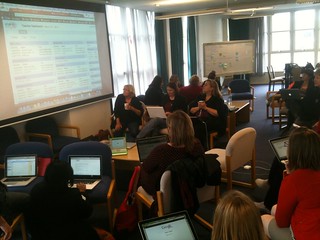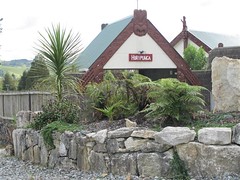Posting in response to a question from
@JoBrodie: How did you set up the Twitter archive in Evernote?
Twitter is dynamic and typically I don't save tweets rather the links and resources, recommended by my PLN are saved to Delicious. Sometimes I favourite a tweet in Twitter (although not a great solution for sharing and categorising to revisit later)
There are tools for archiving tweets however I was looking for a way to collate specific tweets from an event so I could save quickly and share them later. I decided to try using EverNote by syncing my account with Twitter.
At events like
EduCampNZ the Twitter #tag is an effective way for participants to share with each other as well as those who are attending virtually.
During EduCampTaiTokerau I followed #EduCampTT . Any tweets I wanted to keep were either re-tweeted (RT) with @myen included in the tweet or I sent a direct message (DM) to @myen
Each tweet was saved in a new Evernote notebook, so I did have to copy and paste them into
one notebook to share. It would be ideal if the tweets could be saved to a single notebook or online document for sharing. Any suggestions, please let me know.
This worked for me as EduCampNZ events are fast and furious and I was able to respond on the spot to a tweet, saving them in one place, to review later.
Here's how from the Evernote blog:







